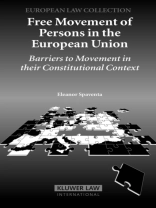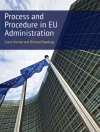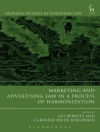Drawing extensively on the entire body of applicable case law, this in-depth study analyses what the free movement of persons provisions of the EC Treaty have come to mean in todays Europe. The author posits the emergence of a new constitutional dimension whereby the Member States bear considerable duties towards Union citizens qua citizens rather than just qua economic actorsa duty not to interfere with individual rights, a duty to respect individual rights, and a duty to protect individual rightsduties to be understood in the context of Union citizenship. Among the relevant issues scrutinised in the course of the analysis are the following: the refinement of the concept of discrimination; the notion of non-discriminatory barrier and remuneration in relation to the free movement of services; non-discriminatory barriers to the freedom of establishment and the movement of workers; the inadequacy of the market access test; the notion of Union citizenship and its impact on the economic free movement provisions; the right to pursue an economic activity free of disproportionate market regulation. The book contains a detailed and extensive analysis of the relevant case law. As a deeply-informed assessment of the conceptual underpinnings and normative potentialities of these fundamental Community rights, Free Movement of Persons in the European Union will be of inestimable value to academics, as well as to postgraduate students and others concerned with the ongoing process of European integration.
Eleanor Spaventa
Free Movement of Persons in the European Union [PDF ebook]
Barriers to Movement in their Constitutional Context
Free Movement of Persons in the European Union [PDF ebook]
Barriers to Movement in their Constitutional Context
ซื้อ eBook เล่มนี้และรับฟรีอีก 1 เล่ม!
ภาษา อังกฤษ ● รูป PDF ● หน้า 204 ● ISBN 9789041150950 ● สำนักพิมพ์ Wolters Kluwer ● การตีพิมพ์ 2007 ● ที่สามารถดาวน์โหลดได้ 3 ครั้ง ● เงินตรา EUR ● ID 8092190 ● ป้องกันการคัดลอก Adobe DRM
ต้องใช้เครื่องอ่านหนังสืออิเล็กทรอนิกส์ที่มีความสามารถ DRM












